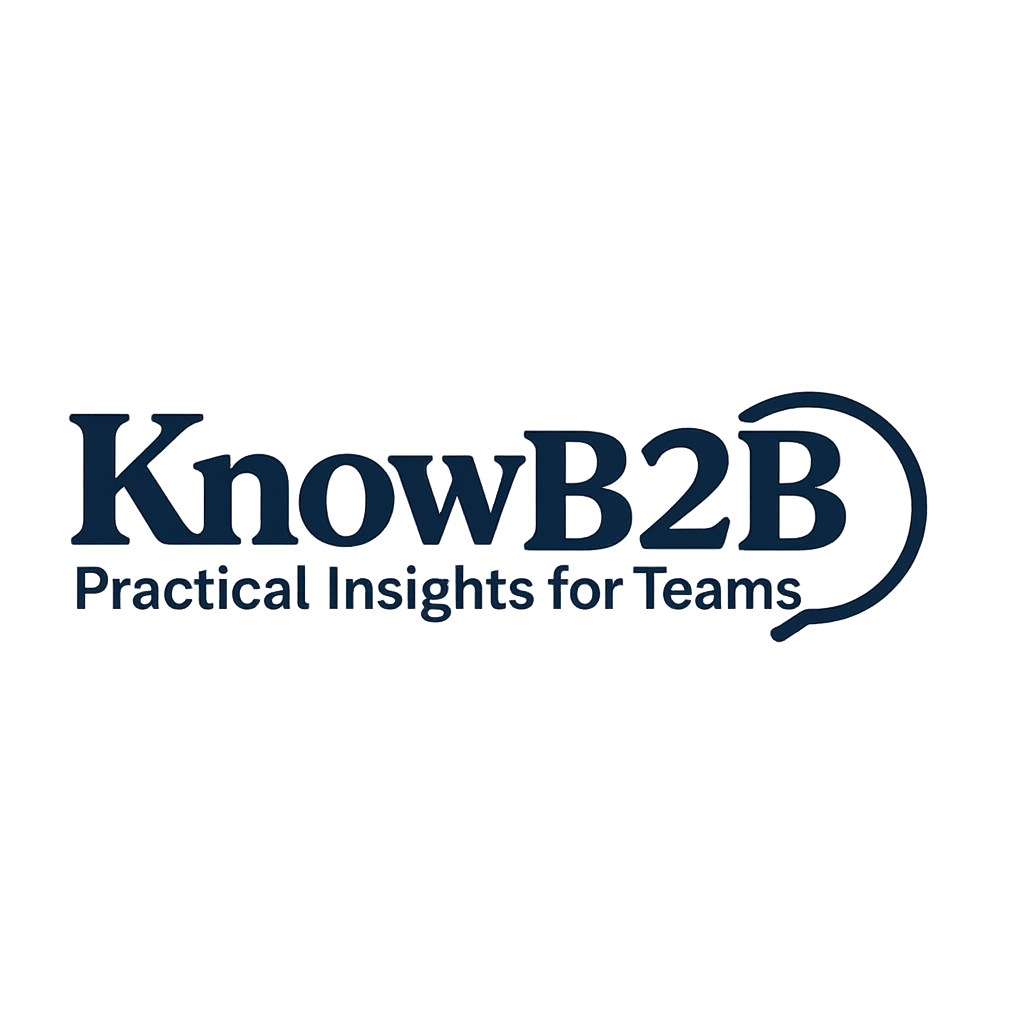B2B Marketing : Strategies, Tools & Trends Explained
Find quick, practical insights into how modern B2B marketing really works.
What is B2B marketing and how is it different from B2C marketing?
B2B (Business-to-Business) marketing refers to the strategies used by companies to promote products or services to other businesses. Unlike B2C (Business-to-Consumer) marketing, which focuses on individual consumer needs, B2B marketing emphasizes rational decision-making, longer sales cycles, and value-driven relationships. Messaging often targets decision-makers like executives or procurement teams, with a strong focus on ROI, efficiency, and long-term partnerships.
Why is B2B marketing important for business growth?
B2B marketing is essential for identifying, attracting, and converting business clients. It helps establish your brand’s authority, generate qualified leads, and support your sales pipeline. With effective B2B marketing, companies can build long-term relationships, reduce customer acquisition costs, and scale sustainably across industries.
How do I build a B2B marketing strategy from scratch?
Start by defining your Ideal Customer Profile (ICP) and understanding your target audience’s pain points. Next, set measurable goals, choose the right marketing channels (such as LinkedIn, SEO, or email), and create tailored content aligned with the buyer journey. Use analytics to track performance and optimize over time. Collaboration with sales is key to aligning messaging and nurturing leads.
What is Account-Based Marketing (ABM) and how does it work?
ABM is a targeted marketing approach that treats individual companies as markets of one. Instead of broad lead generation, ABM focuses on identifying high-value accounts and delivering personalized messaging across multiple stakeholders. It involves close alignment between marketing and sales teams, deep account research, and tailored content across channels like email, ads, and events.
What are the most effective B2B marketing channels in 2025?
In 2025, the most impactful B2B marketing channels include:
LinkedIn (for social selling and brand visibility)
Email marketing (for lead nurturing)
SEO and GEO (Generative Engine Optimization for AI search engines)
Webinars and virtual events
Thought leadership content (whitepapers, case studies, videos) A multi-channel, personalized strategy usually yields the best results.
How is AI impacting B2B marketing?
AI is transforming B2B marketing by enabling hyper-personalization, predictive analytics, content generation, and lead scoring. Marketers can now use AI to analyze buyer behavior, automate repetitive tasks, and deliver real-time messaging tailored to the individual or account. AI also powers tools like chatbots, intelligent email sequences, and voice search optimization.
What is GEO (Generative Engine Optimization), and why does it matter?
GEO stands for Generative Engine Optimization. It’s an evolution of SEO, where marketers optimize content not just for traditional search engines, but also for AI-powered tools like ChatGPT and Google’s SGE. GEO focuses on creating structured, high-quality, expert content that generative engines can reference and summarize accurately. It’s essential for visibility in AI-powered content ecosystems.
How do B2B marketers approach SEO in 2025?
SEO in 2025 focuses on topical authority, structured data, semantic relevance, and AI summarization readiness. B2B marketers prioritize long-form content, FAQ sections, schema markup, and content clusters to boost search visibility. With increasing competition for fewer SERP clicks, the goal is to appear in AI-generated answers and featured snippets.
How do you measure ROI in B2B marketing?
B2B marketing ROI is typically measured through metrics like cost per lead (CPL), customer acquisition cost (CAC), customer lifetime value (CLTV), marketing-sourced revenue, and pipeline contribution. Attribution modeling helps track which channels and content pieces lead to conversions, enabling data-driven optimization.
What are the top B2B marketing trends to watch in 2025?
Top trends include:
AI-powered personalization and campaign orchestration
ABM 2.0 with deeper sales integration
Rise of GEO for AI-driven content discovery
First-party data strategies post-cookie era
Revenue-based marketing over MQL-based approaches These trends emphasize personalization, collaboration, and measurable business impact.
